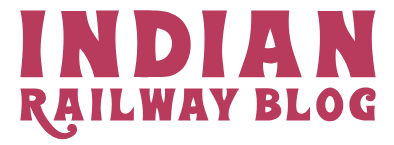The recent decision by the Indian government to push forward with the demerger of railway services has not gone unnoticed. The Congress party, a major political contender in India, has voiced its strong objections to what it views as a hurried decision that may not serve the nation’s best interests.
The Background: A Move to Restructure Indian Railways
Indian Railways, often regarded as the lifeline of the nation, has been a cornerstone in India’s infrastructure and economy for over a century. It employs millions and carries billions of passengers each year across its extensive network. Recognizing its crucial role, successive administrations have sought ways to enhance its efficiency and service delivery.
The Decision to Demerger
In a bid to modernize and reform, the government, led by Prime Minister Narendra Modi, announced its plan to demerge certain railway services. The rationale behind this move is purported to focus on operational efficiency, improve the quality of services, and attract private investments. However, such transformative decisions inevitably meet with scrutiny and debate.
Congress’s Concerns: A Premature Strategy?
The Congress party, spearheaded by spokesperson Jairam Ramesh, has expressed significant reservations about the timing and execution of the demerger. These concerns encompass various dimensions, ranging from the economic impacts on the railways to broader socio-economic implications.
Economic Implications
- Revenue Concerns: The Congress highlights potential revenue disruptions that could arise from a hastily implemented demerger. Indian Railways, as an integrated unit, benefits from cross-subsidization among its services, a key factor in its ability to serve a vast and diverse populace.
- Investment Risks: Introducing private investments may lead to an imbalance where profitable routes are prioritized, potentially neglecting less profitable but socially vital lines.
Socio-Economic Impacts
- Employment Security: Indian Railways is one of the largest employers in the world. A rapid demerger could lead to workforce redundancies and displacement, affecting thousands of families who depend on this employment.
- Access to Services: There’s a concern that privatization might result in increased ticket costs and reduced accessibility, adversely impacting the lower-income groups who heavily rely on this mode of transportation.
The Government’s Justification
The Indian government has countered these concerns by asserting that the demerger is necessary for long-term sustainability and growth of railway services. Several points underscore this strategy:
- Operational Efficiency: By separating specific functions, the government aims to reduce bureaucratic delays and streamline operations.
- Enhanced Customer Service: With dedicated entities, there’s potential for improving passenger amenities and catering to diverse customer needs more effectively.
- Infrastructure Development: Attracting private players might spur infrastructure development, bringing advanced technology and innovation into the Indian railway sector.
Public Reaction and Future Steps
The public reaction to this developing situation has been mixed. While some segments welcome reforms and modernization, the fear of losing subsidized rates and job security lingers among others. The government is tasked with the intricate exercise of balancing these interests to ensure that the core objectives of accessibility, affordability, and employment are safeguarded.
Moving Forward
- Inclusive Dialogue: It is imperative for the government to engage in comprehensive discussions with all stakeholders, including opposition parties, railway employees, and sector experts to mitigate concerns.
- Phased Implementation: A gradual, well-planned implementation strategy could help in minimizing disruptions and facilitating a smoother transition.
- Regular Transparency: The government should maintain transparency regarding the demerger process to build trust and reduce speculation.
Conclusion: A Crossroads for Indian Railways
As the Indian government forges ahead with its vision for Indian Railways, the approach must be measured and inclusive, incorporating feedback from various quarters. The Congress’s critique serves as a crucial reminder of the potential challenges that such sweeping reforms might face.
With ongoing discussions and strategic deliberations, the road ahead for Indian Railways promises to be both challenging and transformative, carrying the potential for setting a benchmark in the public sector restructuring.
Stakeholders and the general public will be watching closely, eager to see how this decision, pivotal to the nation’s infrastructure and economy, unfolds. It remains to be seen if the demerger will deliver the intended benefits without compromising the principles of inclusivity and equity that Indian Railways has long been a symbol of.
“`




